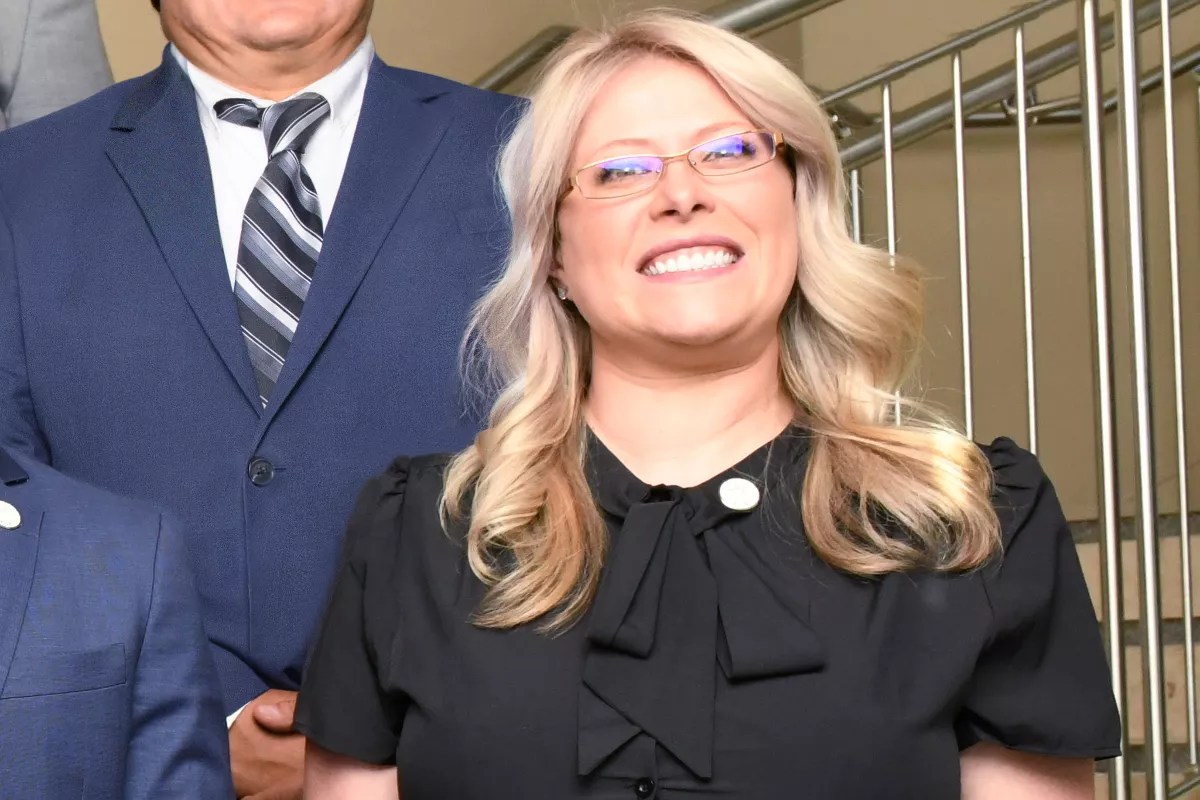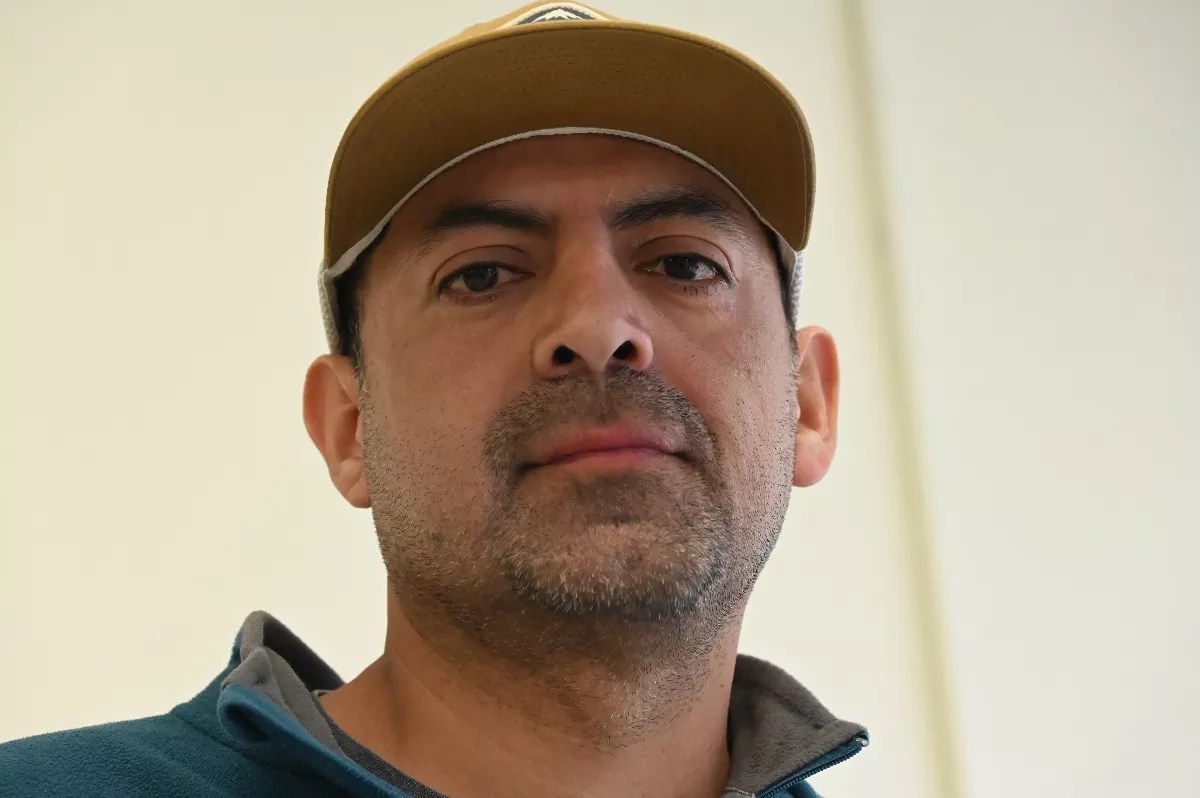
Bennito L. Kelty

Audio By Carbonatix
Aurora doesn’t want to be like Denver. At least, it doesn’t want to follow the Mile High City’s lead in dealing with the migrant crisis. Although Colorado’s third-largest city bills itself as “The World in a City,” it’s not ready to put its money where its mouth is.
That became apparent earlier this month, when Denver began cutting services in order to help cover the cost of offering services to the migrants flooding the city.
“That’s when residents of Aurora started looking at us like, ‘Are we doing that? Are you going to shut down our rec centers?'” recalls Danielle Jurinsky, an at-large member of Aurora City Council. “That’s when they wanted answers, watching what Denver was doing. That’s when we knew in Aurora that we were being forced to make a statement.”
That statement came on Monday, February 26, when Aurora City Council and Mayor Mike Coffman voted 8-3 to support a resolution that says “the city does not currently have the financial capacity to fund new services related to this [migrant] crisis” and reaffirms that Aurora is a “non-sanctuary city,” another title it gave itself with a similar resolution in May 2017.
The latest resolution goes on to “call on the federal government to perform its constitutional duty and secure our nation’s borders.” But it also defends the city’s reputation, saying “Aurora is proud of its identity as the most diverse and global city in the state.”
According to Mayor Mike Johnston’s office, Denver has spent $58 million since December 2022 on shelter, food and transportation for more than 39,000 migrants who have landed in the city, at least temporarily. When you include the cost to hospitals, nonprofits and schools, Denver has actually spent upwards of $100 million, according to a report published on Wednesday, February 28, by the Common Sense Institute, a Colorado economic research group.
Late last year, Denver Mayor Mike Johnston estimated that continuing to support migrants through 2024 would cost Denver upwards of another $180 million, a burden he lobbied the federal government to shoulder. When the U.S. Senate squashed a bipartisan border security bill on February 6 that would have funded local migrant shelters, Johnston began cutting city services, saving $5 million in the process.
On February 28, he announced his plan to close four migrants shelters – including one in Aurora – to save $60 million more, paring the amount still needed for this year’s migrant response down to $120 million.
With its resolution, Aurora made it clear that it would not take the same route, and doesn’t want Denver pushing its problems onto Aurora residents, either. Without naming names, the resolution “demands that other municipalities and entities do not systematically transport migrants or people experiencing homelessness to the City” of Aurora.
“We are not aiding in this migrant crisis. We’re happy to be good neighbors,” Jurinsky says. “We needed to let the residents of Aurora know we will not be making any cuts or shutting anything down, scaling back any services.”

Danielle Jurinsky, an at-large Aurora councilmember, wants Aurora to take a different direction on the migrant crisis than Denver.
Courtesy of the City of Aurora
While Aurora has also been seeing an influx of migrants since late 2022, the city hasn’t officially responded. Instead, nonprofits have organized the city’s migrant response on their own.
Migrants who land in Aurora have been getting food, clothes, vaccinations, help applying for work authorization and some shelter from a coalition of nonprofits called the Aurora Migrant Response Network. These nonprofits have been funding the migrant response with grants from state programs.
Mateos Alvarez, who leads the Aurora Migrant Response Network and the Dayton Day Labor Center, says that Aurora City Council’s decision not to fund the city’s migrant response is “old news” because “it’s fallen on the nonprofits to take the lead on the migrant response.”
Aurora’s resolution acknowledges the work of the nonprofits. “Aurora appreciates those organizations, corporations, and non-profit entities already located in Aurora that are using private philanthropy, budgeted state and federal funding, and other sources of non-Aurora funding,” it reads.
While nonprofits can’t take such sentiments to the bank, Jurinsky says that “this resolution is a statement to our residents. It’s not a statement to the nonprofits. They know what they’re already doing. They know where they’re getting funding, but who doesn’t know what is going on with the migrant crisis is the residents of Aurora. It’s letting them know we’re not funding nonprofits for their migrant response.”
“For those of us who have already been at the front lines of the migrant response, we have already known for a year and a half that the city and the counties were not going to spend anything, like zero,” Alvarez says. “Contrast that with Denver, where it’s in the millions. Aurora, Adams County, Arapahoe County – absolutely zero dollars they’ve given to migrant response.”
The resolution explains that Aurora can’t respond to the migrant crisis the same way that Denver has because it’s not a county. “Aurora is a municipality that is part of three counties and does not have the same financial resources and responsibilities counties have in the State of Colorado, such as a health and human services department,” it reads.
“The city has never provided direct services or funding to newly arrived migrants, and it does not have a mechanism to track the number who have arrived,” notes Ryan Luby, a spokesperson for the city. “Aurora is not structured or funded to provide health and human services to the community.”
Part of Aurora is in Douglas County, too. Asked what kind of migrant support Douglas County has provided, spokesperson Wendy Holmes points out that it has put $1 million in federal COVID funding toward Aurora’s navigation campus, an upcoming project that is intended to serve homeless residents.
In a statement, Arapahoe County spokesperson Anders Nelson says that “commissioners are working with county and state leaders to identify possible solutions to this crisis, including regional approaches. Funding remains the biggest hurdle for these efforts, as federal and state funds are constrained by statute and prevent the county from serving undocumented migrants.”
While Adams County has “not provided specific resources” to migrants, spokesperson Nikki Kimbleton says, it is supporting a state bill, HB24-1280, that promises to create a Welcome, Reception & Integration Grant Program to fund organizations handling the migrant response in their jurisdictions.
The Aurora Migrant Response Network is also supporting that bill, Alvarez says. It was introduced two weeks ago by state Representative Lorena Garcia, who represents Adams County.

Mateos Alvarez leads both the Denver Day Labor Center and the Aurora Migrant Response Network.
Bennito L. Kelty
Despite the resolution sounding like it “raises the sentiment that we don’t support migrants,” nonprofits in the Aurora Migrant Response Network are satisfied with it, Alvarez says, because it “brought clarity” about whether they should expect any financial help from the city.
“Folks grapple with how can we say we’re a ‘world within a city’ and at the same time be a non-sanctuary city,” he adds. “But as we continue to struggle with that very question as a city, at least we brought clarity to those who are on the front lines doing the work. Our city is saying, ‘We recognize the work nonprofits are doing. We’re not able to help.'”
The Aurora Migrant Response Network has “the infrastructure now to operate in a way with very little help from the City of Aurora,” he notes, adding that the resolution “is not going to change our work.”
In a statement released after the February 26 council vote, the Aurora Migrant Response Network said that “while this resolution is not perfect, it will protect the Aurora nonprofits working with migrants” because it “states that the City of Aurora recognizes the importance of the migrant response work being carried out by Aurora nonprofit organizations.”
That statement adds that the Aurora Migrant Response Network is trying to meet with Johnston “to create a line of communication and improve coordination between his office and the nonprofits.”
The first migrant shelter that Denver is phasing out is a former Quality Inn in Aurora. “True to our word, we have not placed any newcomers in that facility since December,” says Jon Ewing, spokesperson for the Denver Department of Human Services.
Johnston noted the same when he commented on the Aurora resolution during his announcement of the shelter closings on February 28. “It’s false that we’re sending them to Aurora,” he said.
But Jurinsky calls that a “bald-face lie.” She’d found out that Denver was housing migrants in Aurora after her cook – she owns two restaurants – was kicked out of a motel this fall along with about forty other families to make room for migrants.
“Denver thought they could fly this under the radar,” she says, adding that Johnston “just walked away” from the situation soon after it became public. But even though the resolution demands that Denver never do anything like that again, Jurinsky says the incident played a small part in its creation.
“It played into it somewhat,” she says. “The final straw was when Denver came out and announced they were cutting services. The residents of Aurora have a right to know where their city stands when it comes to this crisis.”